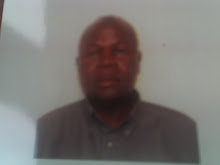FOREWORD
The Nigerian Civil War (1967 – 70) ended about 40 years ago. Active participants on both sides of the battle-lines, as well as observers of both Nigerian and Expatriate origin, have written books on it, with each group dealing with the aspects of the subject which most caught each author’s attention and interest.
The author of this book had also written the book: The Biafran Scientists (the Development of an African Indigenous Technology) from a personal and first-hand experience of most of the events which he narrated.
The book put in a vivid and readable form how the Science Group of the former Eastern Nigeria rose to the challenge of the civil war, by applying ingenuity and resourcefulness to the production of many of the military weapons needed by the Biafran Armed Forces, and the essential commodities required by the population to survive the most gruelling 30 months of the Nigerian history, in which the superior Federal Forces had completely blockaded the Biafran Enclave by air, land and sea.
The response of the Science Group can truly be described as a feat, because there was no Science and Engineering Infrastructure worth mentioning. The record given in the book, of achievements of indigenous experts in military equipment and essential commodities production, shows that, even under the now prevailing atmosphere of a severe economic depression in Nigeria, which is none-the-less more congenial than the civil war environment, Nigerian scientists and engineers can transform the country into a “newly industrialized nation” in a tolerable period of time, if and when they are properly motivated to do so.
It is now about 40 years since that terrible and senseless Civil War ended with the loss of about one million lives. Most of the active participants in the Nigerian Political Crisis that led to that Civil War are now dead. The active Nigerian youths now alive merely heard about the civil war or experienced it as little children, who normally easily forget hard times when good times come again.
The author of this book, “Satire on the Nigerian Civil War, 1967 – 70 and the Aftermath (1970 – 2007)”, experienced the full weight of the Nigerian Civil War and the accompanying TRAUMA.
In this book he has taken a more satirical view of the Civil War, while still telling the full story and some untold stories which the Nigeria youth should know about to guide them in fashioning out a better society for Nigeria, and which the rest of the World should also know about if they are really truly interested in helping Nigeria come out of its perennial Political Crises, either as a truly united country, or as a confederation of self-reliant groups. After all, although in the late 60s and 70s, the World abhorred the word secession, now in the later 90s and this early 21st Century, countries of Europe are breaking up into smaller independent entities, which now co-exist along side one another.
Having myself been part of the NIGERIAN HISTORY, I commend this satirical approach to treating a VERY SERIOUS POLITICAL PROBLEM to all lovers of peace in the World, which has become a GLOBAL VILLAGE, where one event in one country affects other countries now more than it did when telecommunications had not become so advanced and INFORMATION TECHNOLOGY was still in its INFANCY.
Dr. Alex I. Ekwueme
Former Vice President,
Federal Republic of Nigeria (1979 – 83).
May, 2008.
Thursday, April 2, 2009
Subscribe to:
Post Comments (Atom)

No comments:
Post a Comment